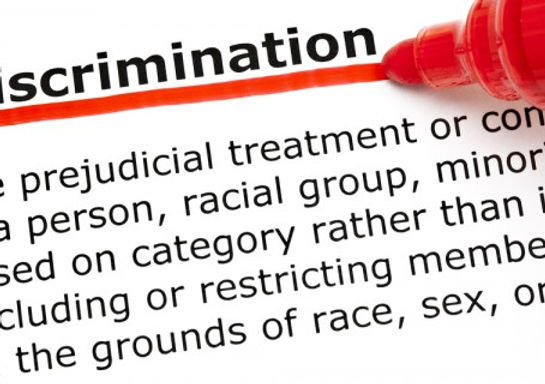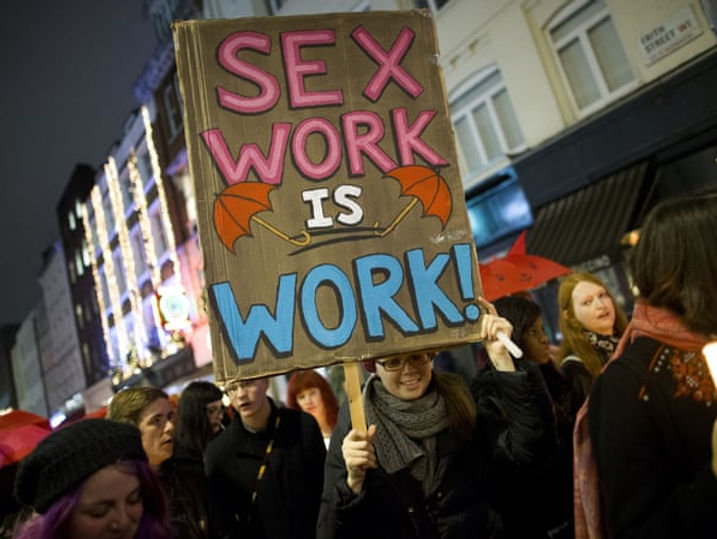All content categorized with: Uncategorized
Filter
Post List

June Medical Services & the Supreme Court’s Evolving Abortion Jurisprudence
Earlier this summer, the Supreme Court rendered the most recent decision in its abortion jurisprudence.1June Med. Servs. v. Russo, 140 S. Ct. 2103 (2020). Yet June Medical Services (“JMS”) has, in a sense, taken us back in time. In Planned Parenthood…Valuing All Identities Beyond the Schoolhouse Gate: The Case for Inclusivity as a Civic Virtue in K-12
Increasing social and political polarization in our society continues to exact a heavy toll marked by, among other social ills, a rise in uncivility, an increase in reported hate crimes, and a more pronounced overall climate of intolerance—for viewpoints, causes, and identities alike. Intolerance, either a cause or a consequence of our fraying networks of social engagement, is rampant, hindering our ability to live up to our de facto national motto, “E Pluribus Unum,” or “Out of Many, One” and prompting calls for how best to build a cohesive civil society. Within the public school—an institution conceived primarily for the purpose of inculcating civic virtues thought necessary to foster solidarity in a pluralistic society—the intolerance has contributed to increased bias-based bullying, particularly toward transgender and gender diverse students. The devastating impacts of intolerance and exclusion on transgender and gender-diverse students include disproportionate rates of psychological distress, physical ailments, increased risk of homelessness, and other negative outcomes. As schools ponder how best to meet their needs and create safe and supportive learning environments, some parents have attempted to assert exclusive authority in this domain, challenging practices such as the adoption of gender-complex and LGBTQ-inclusive curricula as well as gender-affirming policies and practices. Parents allege that attempts by schools to accommodate transgender and gender diverse students infringe on their parental rights and the privacy rights of their cisgender children. While some schools have yielded to parental objections, others have resisted. This Article presents a compelling approach for schools both to address the challenges posed by objecting parents and to carry out their original mission of inculcating an appreciation for democratic norms—namely, civility, tolerance, and equality— through the adoption of gender complex and LGBTQ-inclusive curricula. Relying on both long-standing limitations on parents’ ability to exercise curricular control and research on the benefits of inclusive and comprehensive curricula, this Article makes the case that the educational purposes served by gender complex and LGBTQ-inclusive curricula more than justify any alleged burden on parents’ free exercise of religion as protected by the First Amendment or any alleged infringement upon parents’ substantive due process rights as protected by the Fourteenth Amendment. It posits that although both parents and the state share responsibility for shaping our youngest citizens, parental interests should be subordinate to the interests of the state in promoting proteophilic competence—an appreciation for diversity—through public education. This critical educational mission holds the promise of reaching beyond the scope of gender to include the inculcation of civic virtues essential to the health of an increasingly demographically diverse nation: Respect for “other-ness” and the development of skills needed for effective democratic self-governance.Symbolism Over Substance: The Role of Adversarial Cross-Examination in Campus Sexual Assault Adjudications and the Legality of the Proposed Rulemaking on Title IX
Traditionally, it has been understood that campus sexual assault adjudications need not take on the formalities of the justice system. Since the consequences faced in campus adjudications are considerably less than punishments faced in the justice system, less process is owed under the Due Process Clause. However, in September 2018, the Sixth Circuit reconceived what constitutes due process in campus sexual assault adjudications in the case of Doe v. Baum. The court found that in cases involving conflicting narratives at public universities, the accused or his agent must have the ability to cross-examine his accuser in the presence of a neutral factfinder. On November 29, 2018, the Department of Education took Baum several steps further in a proposed rulemaking on Title IX, mandating cross-examination in all campus sexual assault cases at both public and private universities. In this Comment, I argue that the proposed rulemaking on Title IX goes too far, misinterpreting the case law and the dictates of due process, while neglecting empirical evidence and foreseen adverse consequences. I argue that the proposed rulemaking misinterprets case law—most notably the recent Baum decision— by failing to appreciate important limits to the scope of compulsory cross-examination. I also unpack the vast negative implications of the proposed rulemaking, including drops in reporting rates and considerable institutional costs. As a result of these legal shortcomings and practical implications, I argue that the proposed rulemaking fails to pass the Mathews balancing test. As universities, the federal government, and courts determine how best to adjudicate campus sexual assault allegations, all efforts must be taken to minimize trauma to the victim, safeguard the rights of the accused, and protect the financial viability of educational institutions.The Sexual Misconduct of Donald J. Trump: Toward a Misogyny Report
The numerous allegations of sexual misconduct—unwanted, unwelcome, often aggressive sexual behavior—levied against Donald Trump merit attention and redress. Despite obstacles to civil remedies, there has been some litigation, but it has mostly been unsatisfactory. The many allegations reported in the media have not been amenable to judicial, legislative, executive, or political resolution. Women, including women who allege Trump committed sexual misconduct against them when they were minors, have generally not been afforded the remedies to which they are entitled. Because litigation and media accounts have proven inadequate to the task of addressing Trump’s sexual misconduct, there should be a government inquiry and resulting Report. Such a Report—a Misogyny Report focused on Donald Trump—would assist the nation in assessing and contextualizing the troubling and persistent allegations of his sexual misconduct. An inquiry and Report could provide a forum for considering each individual woman affected and as part of a pattern of Trump’s conduct. Further, an inquiry and Report could ameliorate the silencing of women—through isolation, threats, and nondisclosure agreements— and propose remedies to empower these women as well as other women. A Misogyny Report could also suggest specific correctives to obstacles in the path of bringing and completing litigation that could address the alleged sexual misconduct of Trump and ultimately of others. A government Misogyny Report initiated by Congress or some other governmental body could provide a much-needed reckoning.Putting the Fetus First — Legal Regulation, Motherhood, and Pregnancy
The fetus-first mentality advocates that pregnant women and women who could become pregnant should put the needs and well-being of their fetuses before their own. As this Article will illustrate, this popular public perception has pervaded criminal law, impacting responses to women deemed to be the “irresponsible” pregnant woman and so the “bad” mother. The Article considers cases from Alabama and Indiana in the United States and from England in the United Kingdom, providing clear evidence that concerns about the behavior of pregnant women now hang heavily over criminal justice responses to women who experience a negative pregnancy outcome or who are perceived to have behaved in a way that could result in a negative outcome. This Article provides a new approach by bringing together a critical assessment of fetal protection laws with theories of motherhood ideologies and analyzing how such ideologies have resulted in legal developments not only in the US, where the fetus has been granted legal recognition in most states, but also in England and Wales, where the fetus continues to have no legal personality. The Article will conclude that the application of the fetus-first mentality within criminal law has resulted in dangerous legal developments that challenge women’s rights, while doing little to protect fetuses.The Ground on Which We All Stand: A Conversation About Menstrual Equity Law and Activism
This essay grows out of a panel discussion among five lawyers on the subject of menstrual equity activism. Each of the authors is a scholar, activist, or organizer involved in some form of menstrual equity work. The overall project is both enriched and complicated by an intersectional analysis. This essay increases awareness of existing menstrual equity and menstrual justice work; it also identifies avenues for further inquiry, next steps for legal action, and opportunities that lie ahead. After describing prior and current work at the junction of law and menstruation, the contributors evaluate the successes and limitations of recent legal changes. The authors then turn to conceptual issues about the relationship between menstrual equity and gender justice, as well as the difference between equity and equality. The essay concludes with consideration of the future of menstrual equity and menstrual justice work. The authors envision an expanded, inclusive group of individuals working for greater gender justice.The Plight of Women in Positions of Corporate Leadership in the United States, the European Union, and Japan: Differing Laws and Cultures, Similar Issues
Gender diversity in corporate governance is a highly debated issue worldwide. National campaigns such as “2020 Women on Boards” in the United States and “Women on the Board Pledge for Europe” are examples of just two initiatives aimed at increasing female representation in the corporate boardroom. Several European countries have adopted board quotas as a means toward achieving gender diversity. Japan has passed an Act on Promotion of Women’s Participation and Advancement in the Workplace to lay a foundation for establishing targets for promoting women. This Article examines the status of women in positions of leadership in the United States, several major countries in the European Union, and Japan. We focus on the legal backdrop in each jurisdiction regarding gender discrimination and studies tending to demonstrate the economic benefits of gender diversity. We conclude that although important steps have been taken in the direction of narrowing the gender gap in all jurisdictions examined, progress has been slow and difficult across the board. The issue of too few women at the top will not be resolved until there is a wider acceptance that female leaders can benefit their organizations and contribute to social and economic progress. Moreover, the presence of women on corporate boards is valuable in and of itself and the status quo ought to be further challenged in international business.Me Too? The Invisible Older Victims of Sexual Violence
A review of legal research on violence against women and elder abuse reveals a disturbing picture. There is hardly any American legal research examining sexual abuse of older women and its conceptualization in legal literature and treatment in the legal system. This Article attempts to fill the abovementioned gap and to bring the hidden issue of sexual violence against older women to light. Scholars writing on rape, violence against women, and elder abuse tend to analyze age and gendered sexual violence separately from each other, without accounting for their interplay. This Article proposes a conceptual framework of sexual abuse of older women that integrates age and gender in the analysis. To achieve this end, this Article examines 109 publicly available American cases involving sexual violence against women over the age of 60, between the years 2000 and 2018, which are based on a search of 1,308 American cases. Based on this new empirical database, this Article offers an opportunity for analyzing the social and legal “taboo” regarding sexual abuse of older women. Despite findings indicating that sexual abuse of older women (and older people in general) is a significant issue creating serious consequences for victims, the Article shows that legal actors, social workers, health professionals, family members, and society miss its signs. Sexual abuse of older women is being noticed and treated by the criminal justice system only when it reflects a “real rape” 1 scenario. The obstacles to effective prosecution and to full access to the criminal justice system are distinctive in the case of older victims because of the effect of age, the way age shapes the experience of older victims of sexual violence, the effects of sexual violence on the victims, and its interplay with gender. Although sexual violence against older women is a form of elder abuse, it should be viewed separately from other forms of elder abuse and should be understood as part of a wider context of gender-based violence. There is a need for a holistic approach to sexual violence of older women, which perceives the sexual violence as a unique phenomenon and provides older women with legal and social mechanisms that fit their needs and experience both as women and elderly people.
Title VII Should Include Sexual Orientation
Title VII of the Civil Rights Act of 1964 prohibits discrimination in employment on the basis of race, color, religion, sex and national origin.1Title VII of the 1964 Civil Rights Act, 42 U.S.C. § 2000e (1964). The Supreme Court of the…
Sex Worker, Not Prostitute
I first heard about using the term “sex worker” instead of “prostitute” while listening to an episode of “My Favorite Murder”,112 – Our Bodies, Our Twelves, My Favorite Murder (Apr. 14, 2016) (downloaded using iTunes). a true-crime comedy podcast, demonstrating how…


